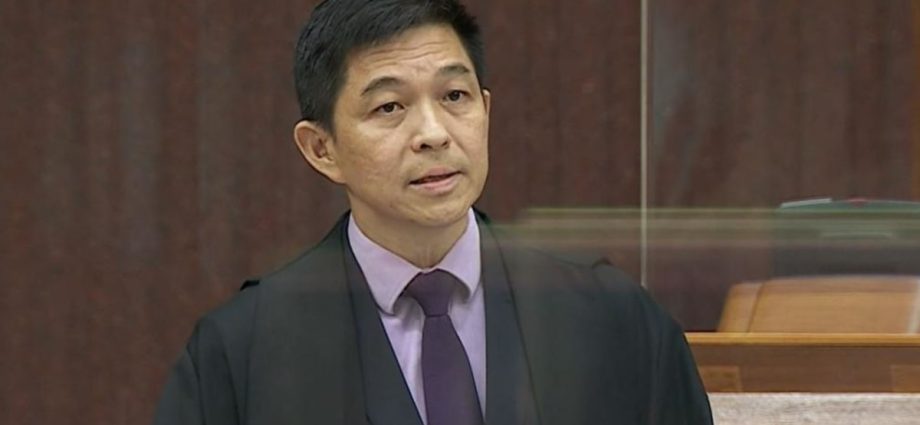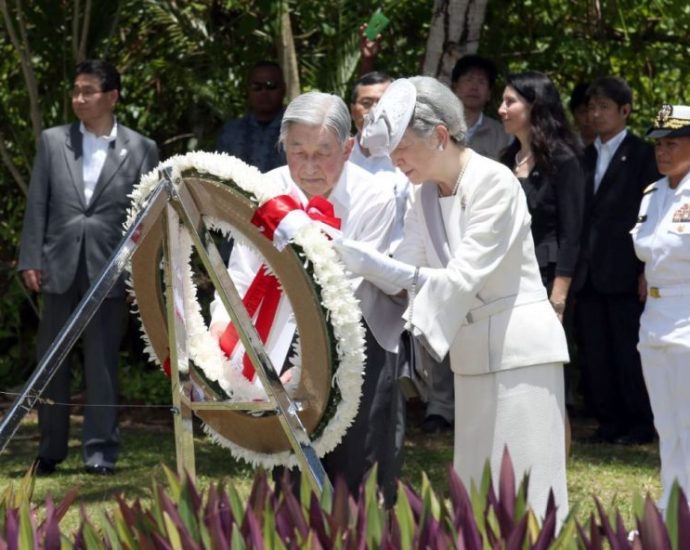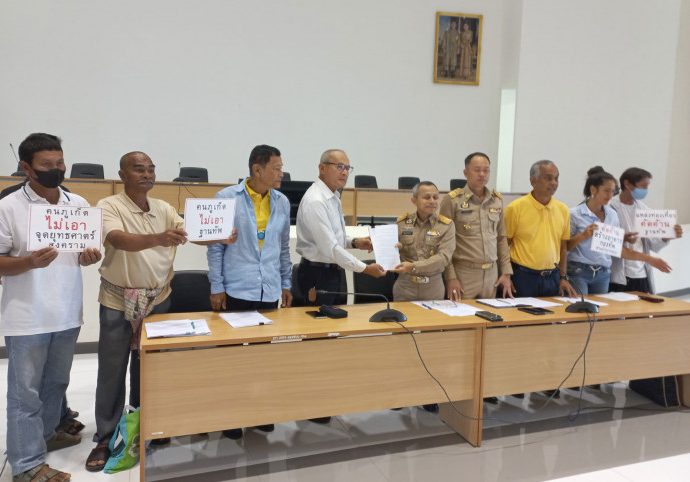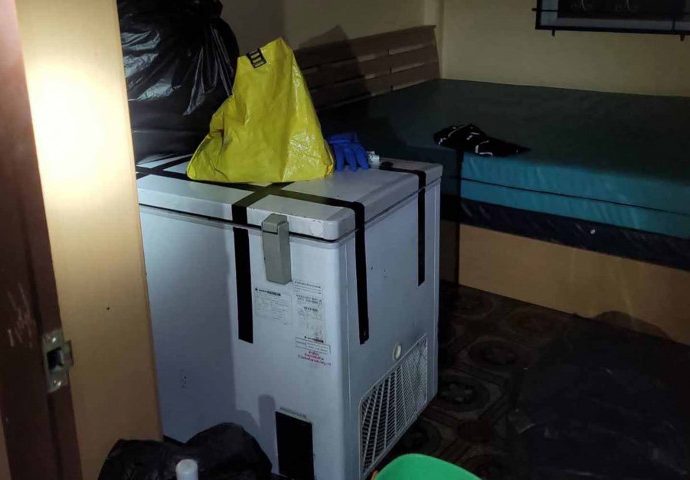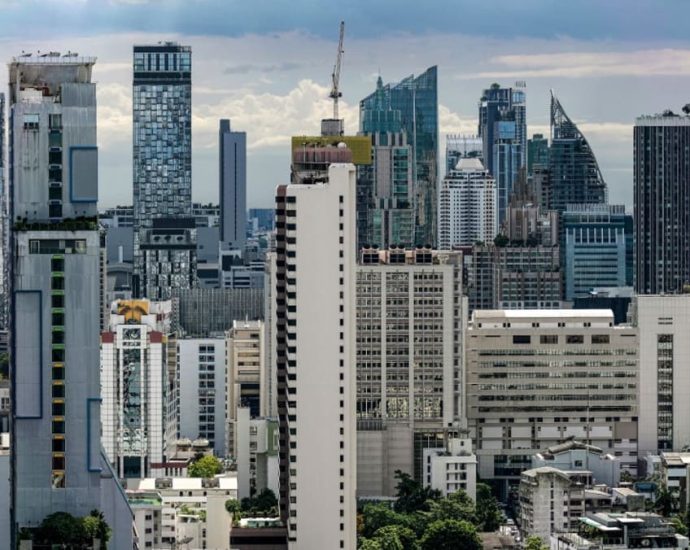Speaker of Parliament Tan Chuan-Jin apologises for using unparliamentary language

SINGAPORE: Speaker of Parliament Tan Chuan-jin has apologised for using unparliamentary language during a parliament sitting in April this year.
According to a reddit thread, Mr Tan had muttered “f****** populist” after he called for Member of Parliament (MP) Vikram Nair (PAP-Sembawang) to respond to MP Jamus Lim (WP-Sengkang).
“I had to listen to the recording as I did not recall the occasion,” Mr Tan said in a Facebook post on Tuesday (Jul 11).
“Based on the clip it appears that I had a reaction to a speech made in the chamber,” he added.
Mr Tan said that when he listens to speeches made, he like everyone else, “form views on them”.
He added that what was said were his private thoughts which he had muttered to himself and not to anyone.
“However I should not have expressed them aloud or in unparliamentary language, and I apologise for that,” Mr Tan said.
Mr Tan also said that he has spoken to Mr Lim and apologised to him, to which Mr Lim “has kindly accepted”.
COFA renewals key to US defense of Pacific
How does a great power get itself defeated? Sometimes it does too much – as in America’s 20-year effort to turn Afghanistan and Iraq into countries more to its liking.
And sometimes it does too little – as is happening in the Central Pacific. That is where Chinese influence has gradually eroded what Washington thought was a solid, almost guaranteed presence.
Some background
First a little background. Three contiguous island nations – Republic of Palau, Federated States of Micronesia, and Republic of Marshall Islands – occupy an area about as large as the continental United States. They also make up a huge corridor in the middle of the Central Pacific.
They make up strategic geography by any standard. Indeed, after World War II, they (along with what would become the Commonwealth of Northern Mariana Islands) were declared the only “strategic trust territories” by the United Nations. And they were assigned to the United States for administration.
Starting nearly 40 years ago, as they became independent, each of the three entered into a “compact of free association” (COFA) with the US. These countries are now known collectively as the Freely Associated States (FAS).

These complex COFA agreements are currently being renegotiated. They provide the three countries with financial and other assistance — including the right of their citizens to live and work in the United States. The amounts and types of assistance are periodically renegotiated.
Through the COFAs, Washington also undertakes responsibility for the three nations’ defense. That includes the right to prevent any foreign military presence in each of the COFA states. This, many strategists assume, is in “perpetuity.”
And that was supposed to be that.
Why are these Important to the United States?
Without control of this terrain, America’s defense posture in the Indo-Pacific becomes untenable, if not impossible. And preventing the People’s Republic of China (PRC) from seizing Taiwan would be nearly impossible as well.
As a former US Navy intelligence officer puts it: “If we lose the Freely Associated States to the PRC, then you can kiss Taiwan goodbye.”
However, over the last 30 years (some would say longer) the PRC has insinuated itself into the commercial and political systems of each FAS nation. It is now to the point that American control is no longer thesure thing it was once thought to be.
There is no reason the FAS nations cannot cancel the COFA agreements. Or, for that matter, just declare that they no longer consider the deals to be valid and are withdrawing.
And China has got a blank check or three ready in case they should do so. In fact, it is encouraging them. If this happens the United States has no good options – and “sending in the Marines” is not a good option.

Where do the negotiations stand?
The financial and service components of the COFAs must be signed by at least the Federated States of Micronesia and Marshall Islands. (Palau is a year later.) And then they must be passed by the US Congress by September 30, 2023.
If they are not, services like weather forecasting, the post office, education programs, and much, much more run out of money. This can be quite serious. For example, the Federal Aviation Administration is one of the services. If that stops running, normal flights can’t operate.
So far, Marshalls hasn’t signed. But Palau and Micronesia have signed, and those agreements are heading to Congress. While the Senate seems supportive, the question is, will they pass the House of Representatives?
One would think a look at the map – and remembering a little history about World War II – would make even the most skin-flint of politicians reach for the checkbook and allocate whatever funds are necessary to keep the FAS nations on side.
It is the best bargain the United States has ever had.
A critical foundation in the Central Pacific
The COFA’s are best viewed as a maintenance fee and a foundation for the US presence in the Central Pacific. And that comes with the right to exclude foreign militaries from the FAS territories. Sort of like buying health insurance.
The amount of money needed to renew the COFA deals is also a pittance – around $7.1 billion, spread out over three countries and twenty years. Said in another way, that’s under $117 million per country per year (and a chunk of that goes back to US services).
Not convinced? That cost is literally less than half a day’s worth of Medicaid and Medicare fraud.
What would be the cost of having to defend properly or having to occupy the FAS to forestall Chinese influence?
A lot more than that.

The Risks of Passing This Up
But can’t the US Navy just do more with what it has and “spread a bit” to cover the region?
The laws of physics intrude here. As noted by a senior retired US Navy officer who served in the Pacific for several decades:
We had to balance the limited resources against the threat from the PLA Navy in the East China Sea and South China Sea, North Korean missile launches and maritime aggression, normal training and readiness requirements, and pop-up contingencies like a HADR event….
And then you add on this topic (for a region the size of the USA) and you begin to understand the frustration of many who serve in the FDNF (Forward Deployed Naval Force)… And it also explains why most of the officers on the 7th Fleet staff went to work early and stayed late… It seemed as if the “tasking” would never end…and we had to keep doing more with less.
The US Air Force would tell you something similar.
The US government has simply got to pay up – or it risks defeat in the Indo-Pacific. And that means defeat everywhere.
What would losing defense access given by the COFAs cost the US?
Here is a back-of-the-envelope calculation of what it would cost to cover or properly control the area the US currently has access to under the COFAs in the absence of those agreements.
Of course it’s a rough estimate of some initial costs, and it’s limited only to a very, very narrow military lens, so it may be more and it may be less. But you’ll get the idea.
1. More ships
You’d need more Navy ships. Say 20. That would give you 7 that you could keep on station or moving around the area. And remember that the area is the size of the continental United States. It depends on type of ship ,of course, but you’d do well to have something that can fight since the PLA Navy may be on the scene.
Cost: $40 billion.
2. Submarines
You might need another submarine to handle the area? So maybe two or three subs. And don’t forget extra submarine tenders.
Cost: $10 billion or more.
3. Aircraft
You’d need additional aircraft – patrol, surveillance, combat – to deploy in the area.
Cost: $2 billion.
3. Ground troops
Having a battalion of ground troops in each of the countries to keep things in order is another important part of the task.
Cost: $2 billion.
4. Facilities and support
Military construction would be necessary in the region. This would be needed to allow our occupying force to have facilities to live in and to operate from:
Cost $2 billion.
5. Surveillance systems
We would also need surveillance systems and hardware to cover the area.
Cost: $2 billion.
6. Missiles and defense hardware
Air and missile defense hardware systems needed to defend US troops in the area would be another expense:
Cost: $2 billion.
7. Seven years operating costs
Then there are operating costs over seven years for all of the above.
Cost: $10 billion.
8. Support for the FAS
Another cost would be that of running the FAS governments, societies, and economies for which we are now responsible.
Cost: $3 billion.
9. Goodwill lost
There is also the value of “goodwill” lost to the United States by virtue of having to become an occupying force. And that would happen in an area where we were once well-regarded. It would be a political warfare win for the PRC.
Value: almost priceless. But let’s say $10 billion in cost to the US. It’s also the equivalent of a $10 billion handout to the Chinese.
Total loss: $20 billion.
10. Regional allies and friends
Another cost is the value of the United States’ regional allies – Japan, South Korea, Taiwan, Philippines, Australia. And others who may not be allies but are watching closely to see if America is serious about defending its interests. And looking after its partners and resupply lines.
They won’t just see this as America “wavering” but rather “withdrawing.” Indeed, we may find they become far less cooperative as they seek to hedge their bets.
Cost: It’s hard to quantify, but say $10 billion – conservatively.

Where that puts us
And here we are at $103 billion.
But there’s more: In the event a fight is required to keep or retake the FAS, the costs skyrocket. As we saw in Afghanistan where we were blowing $45 billion a year.
When you add in the cost of long-term veteran care, the price tag on the Iraq War is north of $3 trillion.
As one observer put it, that amount
will not fund a single day of full scale war in COFA let alone the Pacific. [There would be a] Minimum of $2 billion in direct costs per day. And $3.5-5 billion per day when you factor in market/industry losses.
A $5 increase in a barrel of oil increases US Navy/Marine Corps fuel bill by $1.05 billion USD per year for peacetime consumption. (Which is a fraction of our wartime guzzle.) What do you think will happen to the price of fuel, food etc on day one of the war? Massive inflation and rationing at home. Very costly indeed.
And if Taiwan is lost because of what happens in the FAS, the blow to America’s position in the Indo-Pacific ー not to mention its prestige, position and perceived reliability globally ー will be immense. This will have demonstrated that US military power could not keep 23 million Taiwanese free. United States financial and economic power could not either. Nor could America’s nuclear arsenal.
The cost of this and having most of Asia turn red overnight will be a lot more than the $350 million that’s being argued over with the COFAs.
Squandering opportunities
Squandering this opportunity to renew relationships that have existed since World War II and to yield vital terrain that was paid for in American blood would constitute diplomatic, legislative and moral malfeasance.
It’s not like we haven’t seen this before.
In the early 1990’s the US balked at the Philippines‘ request to increase our annual rent on military facilities by $116 million per year. (In current dollars, that is three Joint Strike Fighters).
This was a bargain we passed on and China took notice. If we had remained, the Spratlys, Mischief Reef and Fiery Cross Reef would most likely be reefs today. Not Chinese military bases.
Congress is once again in danger of giving the expression “penny-wise and pound-foolish” a new meaning.
Grant Newsham is a retired US Marine officer and former US diplomat. He is the author of the book When China Attacks: A Warning To America. Find his testimony before the US Congress on YouTube. This article was originally published by JAPAN Forward and is republished with permission.
Locals voice opposition to navy base
Say they don’t want military in Phuket

PHUKET: About 100 residents oppose a plan to grant the navy access to land to set up a base and accommodate a future expansion of the adjacent international airport.
The residents recently submitted a letter to the provincial governor, demanding that the Third Naval Area Command (TNAC) cease barricading an area in the Bang Khanoon forest park in Thalang district.
They also insisted that a public hearing be organised on the navy’s plan to establish a new site for the 22nd Air Defence Battalion (ADB) and designate a future expansion area for Phuket International Airport.
On March 1, the TNAC was permitted by the Royal Forest Department (RFD) to use about 3,700 rai of forest land in tambon Sakhoo. Regarding the 22nd ADB, the navy has proposed to relocate parts of its shore patrol operation units and Naval Military Police Regiment there.
It was found that the residents had turned the area into farms and built houses.
The authorities met with the residents on April 24 to explain the navy’s development plan for the forest area.
Last month, the navy warned residents living in the area it would be fenced off for TNAC use and to prevent further encroachment.
Phuket MPs from the Move Forward Party were earlier invited to visit the area.
On Monday, the residents demanded that the navy remove a barbed-wire fence within seven days and conduct a public hearing on the TNAC’s plan.
Their demands were submitted to the provincial governor’s office. Deputy governor Anuparb Rodkwan was on hand to receive the letter.
Uthai Suksirisamphan, leader of the resident group, called on the provincial governor to order the local forestry office to withdraw a forest encroachment charge it lodged against residents with the Department of Special Investigation.
He added the navy should not refer to the residents as encroachers.
Mr Uthai said the residents found themselves in a dispute with the navy after the force was authorised by the RFD to access the land.
He claimed the navy’s presence would lead to Phuket being militarised and it would eventually collapse the local economy.
“We don’t want the military here,” he said.
Mr Anuparb, meanwhile, said he believed a solution would be worked out, allowing residents to continue farming and living on the land while the navy operates its facilities.
Missing German broker found dead
Missing German discussed property sales with another broker before his body was found
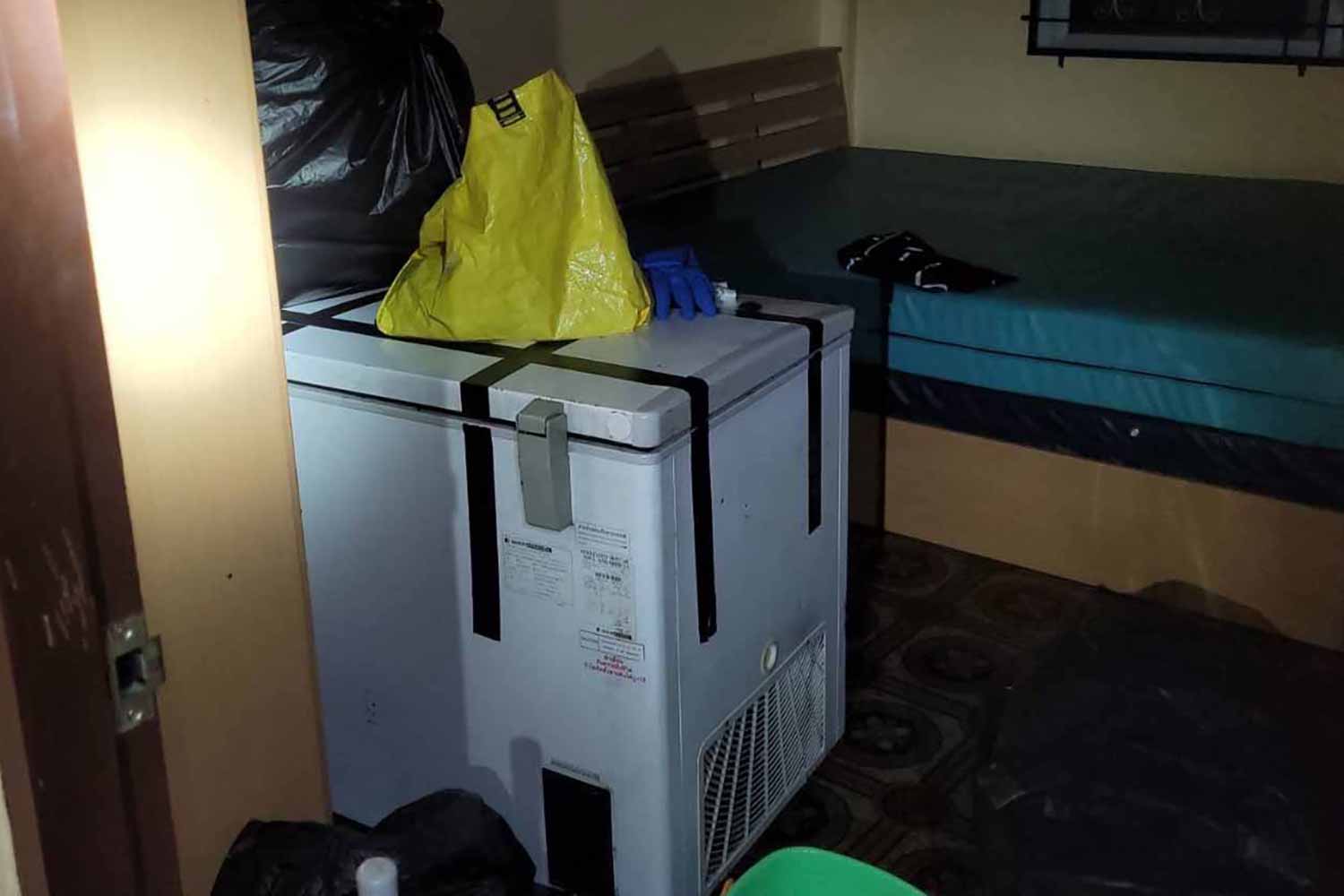
CHON BURI: Police found the body of a missing German property broker hidden in a freezer at a house in tambon Nong Prue of Bang Lamung district on Monday night.
Detectives found the body of Hans Peter Ralter Mack, 62, as they were conducting a search based on surveillance camera footage. Police were trying to find the whereabouts of the German who went missing from his family on July 4.
Forensic officers were examining the scene to determine the cause of death.
Pol Maj Gen Theerachai Chamnanmor, investigative chief of the Provincial Police Region 2, said there was evidence pointing to the offenders. He attributed the death to extortion, adding that about 2 million baht had been transferred from the man’s bank account.
On July 5 Mack’s 24-year-old Thai wife, whose name was not released, told investigators that he had left their house in Swiss Paradise housing estate in Pattaya, Chon Buri, on July 4 to meet a foreign property broker. The meeting was to discuss property sales in Pattaya and Koh Samui of Surat Thani province.
Mack’s silver Mercedes-Benz E350 coupe was found in the CC Condominium parking lot on Khao Noi Road in tambon Nong Prue on Sunday morning.
Inside the car police found stains of a chemical cleanser apparently used in an attempt to destroy evidence.
According to his wife, she had been living with the German for about five years. The man had two sons from a previous marriage.

A photograph on a smartphone shows Hans-Peter Mack, a missing 62-year-old German businessman. (Photo: Chaiyot Pupattanapong)
White Island: New Zealand volcano tragedy trial begins
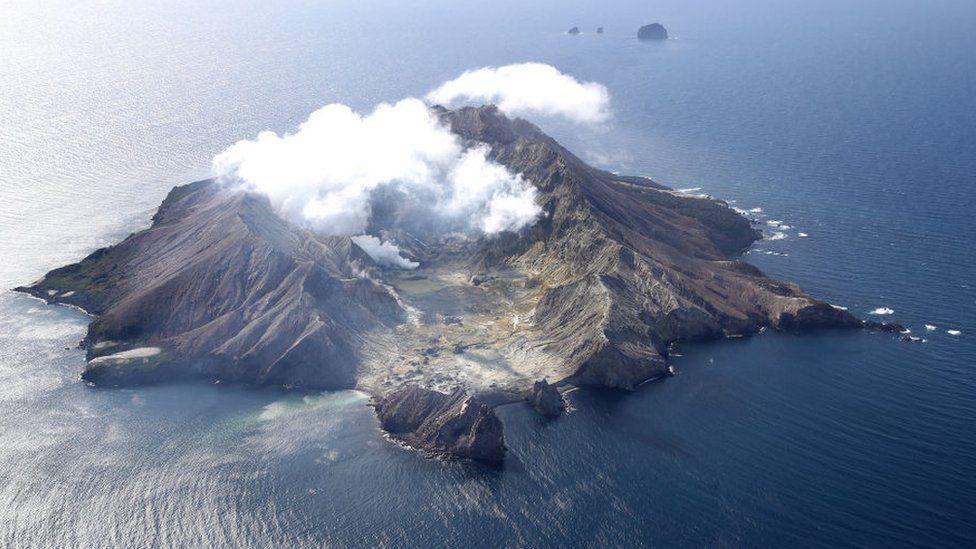 Getty Images
Getty ImagesTour operators accused of safety failures in the lead up to the deadly White Island volcano disaster are facing a landmark trial in New Zealand.
Twenty-two people died when the country’s most active volcano suddenly erupted on 9 December 2019.
It had been showing signs of unrest for weeks, with workplace regulators saying the eruption was not unforeseeable but tour operators were unprepared.
Six parties face fines of up to NZ$1.5m ($928,000; £724,000) if found guilty.
At the time of the eruption, 47 people were on White Island – also known by its Maori name of Whakaari. Almost half of those present were killed, including 17 people from Australia, three from the US, and two from New Zealand. Another 25 people were injured, many suffering horrific burns.
The disaster prompted the most extensive and complex investigation ever undertaken by WorkSafe NZ, the nation’s main health and safety regulator, which itself has been criticised for failing to monitor activities on the island between 2014 and 2019.
Thirteen parties were initially charged in December 2020 with exposing people to risk of harm under the health and safety act. They were accused of failing to assess and mitigate risks, to adequately inform tourists of the dangers, and to provide protective equipment.
“This was an unexpected event, but that does not mean it was unforeseeable and there is a duty on operators to protect those in their care,” WorkSafe chief executive Phil Parkes said at the time.
None of the charges relate to events during or after the eruption, and the defendants include companies which did not have tourists at the volcano at the time.
The case against one tour operator has since been dropped, and another six pleaded guilty before trial – some just days ago. Most are yet to be sentenced.
White Island Tours, which was responsible for the safety of all except one of those killed, is among the companies which have admitted the charges.
Six defendants remain, including members of the Buttle family, who have owned White Island since 1936.
Peter, James and Andrew Buttle, the three brothers who inherited the island, have been charged in their roles as directors of Whakaari Management – which granted licences to tour operators and also faces charges at a company level.
ID Tours New Zealand Limited and Tauranga Tourism Services Limited are also contesting their charges in court.
The judge alone trial, which begins hearing evidence on Tuesday, is expected to last four months.
Once a popular sightseeing destination visited by thousands every year, tourists have not been back to White Island since the tragedy.
The volcano had been erupting in some form since 2011, and was rated at Volcanic Alert Level 2 at the time of the disaster, indicating “moderate to heightened volcanic unrest”.
Related Topics
-
-
30 November 2020
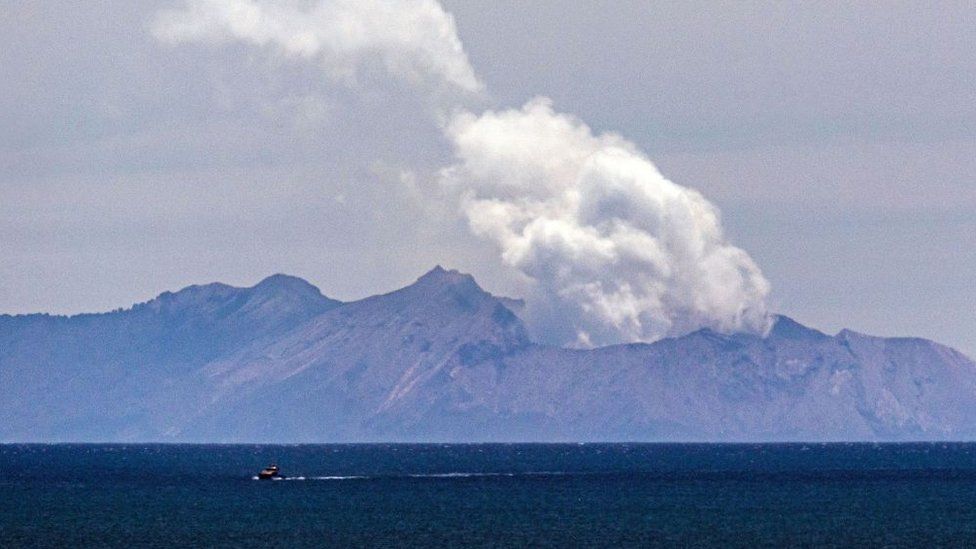
-
-
-
10 December 2019
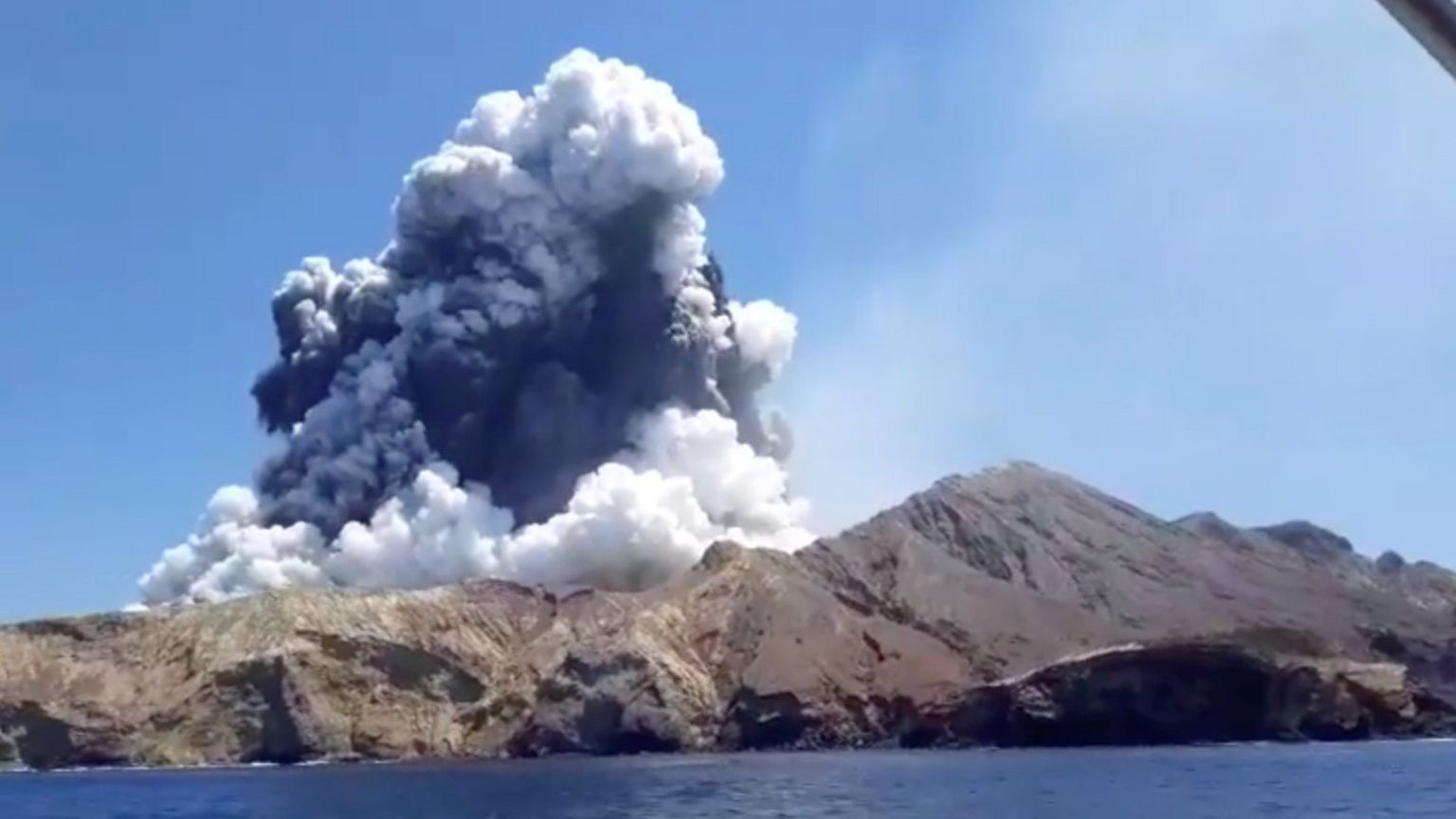
-
-
-
17 December 2019

-
Multiple sclerosis affects more women than men in Singapore: What treatments help fight this autoimmune disease?

Secondary progressive MS (SPMS): This is the second stage of MS diagnosis and often a progression of RRMS where the disease becomes more severe, without improvement in the symptoms or any remissions. SPMS symptoms show more nerve damage, which indicates steady progression of the disease.
Without treatment, 50 per cent of people with RRMS get SPMS within 10 years while almost 90 per cent of RRMS cases develop into SPSS in 25 years.
Primary progressive MS (PPMS): The rarest of MS cases, where symptoms accumulate, and neurologic functions and ability worsen. This type of MS accounts for 10 to 15 per cent of all MS diagnoses and affects both men and women equally.
PPMS tends to be diagnosed in people in their 40s and 50s. Those with PPMS tend to have more problems with walking, along with other symptoms that become more severe.
MULTIPLE SCLERORIS AFFECTS MORE WOMEN THAN MEN
Dr Quek said that in Singapore, multiple sclerosis affects more women: ”Four in five MS patients are women.”
It’s not fully understood why more women than men develop MS, she said. Researchers have proposed explanations that involve an “interaction between genes, hormones and differences in the immune system” but more research is needed.
According to this Johns Hopkins report, a woman’s nervous and immune system is different to that of a man’s, and coupled with hormonal fluctuations, may be why MS is more common in women.
A University of Pennsylvania study stated that women suffering from MS find their mobility impacted, and their MS symptoms can flare up during their menstrual cycle and at menopause.
The Multiple Sclerosis Society in the United Kingdom also said that some contraceptives may increase the risk for blood clots due to mobility issues from nerve damage, leading medical experts to say there is a risk of clotting using certain birth control.
MULTIPLE SCLEROSIS IN PREGNANCY AND MENOPAUSE
There is a common misconception that MS affects fertility in women and the hormonal changes during pregnancy can worsen the disease, said Dr Quek.
However, she said that while MS often affects women who are diagnosed in their child-bearing years, patients with multiple sclerosis are just as likely to become pregnant and have a healthy pregnancy and baby as their peers without MS.
“Studies have even shown a decrease in the frequency of MS relapses during pregnancy,” she said.
Network notes antiretroviral shortage

The Thailand Network of People Living with HIV (HIV network) is calling on the National Health Security Office (NHSO) to provide more antiretroviral drugs to patients amid a shortage at the Government Pharmaceutical Organization (GPO).
Apiwat Kwangkaew, chair of the HIV network, and other representatives filed a letter with the NHSO, demanding that the government agency solve the problem.
Mr Apiwat said the shortage of the drugs has been going on for a long time, with many patients having been prescribed month-long courses instead of for three to six months.
He said that the shortage has affected the lives of people who require such medication. Some of them were not prescribed the adequate amounts of pills required to resist HIV.
The shortage of HIV medication will eventually lead to overburdening at hospitals, he noted.
The GPO is responsible for providing medication to people living with HIV in Thailand via three programmes — the social security, universal healthcare and government official schemes.
Mr Apiwat said the GPO should clarify why it fails to provide enough HIV medication to hospitals across the country.
“Even if people have enough money, they still cannot buy the medication. The GPO still has not paid for the medication bills that hospitals had reimbursed to their patients,” Mr Apiwat said, adding the GPO can provide half of the medication needed by hospitals.
Mr Apiwat said he had spoken to GPO officials and found that the organisation had struggled with the drug’s production for over a year, and the situation worsened this year.
PM failed to curb pollutants

Chiang Mai: The Administrative Court on Monday ruled that Prime Minister Prayut Chan-o-cha and the National Environmental Board (NEB) had neglected their duties in tackling toxic air pollutants in the province, in a case brought forth by a local resident.
Wasuchart Pichai had petitioned that he was affected by the haze problem and claimed that Gen Prayut and the NEB had failed to address ultra-fine dust or PM2.5 pollutants.
In it, he asked the court to order Gen Prayut to take action, including ordering cloud-seeding operations to improve the air quality. He also called for the entire province to be declared a disaster zone so the authorities could disburse funds to mitigate the pollution’s impact.
At the hearing, the court heard from agencies concerned and expert witnesses, including the dean of Chiang Mai University’s Faculty of Medicine, the director of the National Health Security Office Zone 1 and the director of Maharat Nakhon Chiang Mai Hospital.
The court said that based on the testimonies of witnesses, fine dust pollution had worsened every year and negatively affected the health of people both in the short and long term. It found that the defendants had neglected their duties in resolving the problem under the law.
The court then ordered the defendants to exercise their power under the law on the prevention and mitigation of disasters, the law on the enhancement and conservation of national environmental quality and others to better regulate and manage air pollution in the province.
In April, about 1,700 residents in the province also filed a lawsuit with the Administrative Court against Gen Prayut and related state agencies over their alleged failure to resolve the haze issue in the North.
The residents claimed that people living in urban areas were at risk of being exposed to unsafe levels of ultra-fine dust particles, which could shorten lifespans by up to five years due to prolonged exposure.
Pita future in doubt
EC move could end MFP leader’s PM bid

If the Election Commission (EC) forwards a case involving Move Forward Party (MFP) leader Pita Limjaroenrat’s previous iTV shareholdings to the Constitutional Court, this could sway senators in the crucial vote for a new PM on Thursday, according to a former election commissioner and an academic.
Former election commissioner Somchai Srisutthiyakorn said if the court accepts the case for consideration, the court can order Mr Pita to be suspended from duty as an MP, which will affect voting on Thursday.
Mr Pita would not be allowed into parliament as an MP, though he still could enter the premises as a prime ministerial candidate, Mr Somchai said.
This would also be cited by senators as a reason to abstain from voting as they would fear the vote could be problematic due to Mr Pita’s alleged ineligibility, he said.
Mr Pita, who is the MFP’s sole prime ministerial candidate, stands accused of being ineligible to contest the election because he held 42,000 shares in iTV, which is believed by some critics to be an operational media company when he registered his candidacy in the 2019 election. Mr Pita has denied the allegation, saying he only served as executor of the family’s inherited shares.
The constitution bars individuals with media shareholdings from running for office.
Mr Somchai said the EC should summon Mr Pita to defend himself against the accusation before it decides to forward the case to the court.
An EC inquiry panel looking into Mr Pita’s alleged ineligibility wrapped up its investigation and forwarded findings to the EC’s main committee yesterday.
EC chairman Ittiporn Boonpracong on Monday said that the poll agency has yet to forward the case to the Constitutional Court as the inquiry panel only briefed the EC’s main committee on its findings on Monday.
Jade Donavanik, a legal scholar and ex-adviser to a charter drafting panel, echoed the view, saying if the EC finds grounds for the accusation against Mr Pita, the next step is for the poll agency to forward the case to the court.
If the court accepts the case, it will ask the House speaker to suspend Mr Pita as an MP pending a trial, Mr Jade said.
However, Mr Pita can still be nominated for prime minister in the vote on Thursday, Mr Jade said.
Even if Mr Pita wins the vote, he still cannot carry out the duties of a prime minister pending the trial, Mr Jade added.
In that case, senators may decide to abstain from voting until the court rules on his eligibility, Mr Jade said, adding that another way out of the problem is for political parties to nominate another alternative candidate.
“It is not easy. I don’t think a new prime minister can be elected in the July 13 vote,” Mr Jade said.
MFP secretary-general Chaithawat Tulathon said on Monday he sent an urgent letter to the EC to protest any decision to forward the case to the court.
He said the poll agency was trying to rush the case, and the EC’s inquiry panel had failed to summon Mr Pita to explain himself before the panel first, as stipulated by its regulations.
Mr Pita said on Monday that the EC had not summoned him yet, but he is ready, adding that talks between the MFP and senators would yield a favourable outcome.
According to sources, the Senate committee on political development and public participation believes if Mr Pita fails to win his PM bid in the first round of voting on Thursday, he cannot be nominated for any further voting rounds.

Commentary: Outside of politics, Thailand has a good story to tell
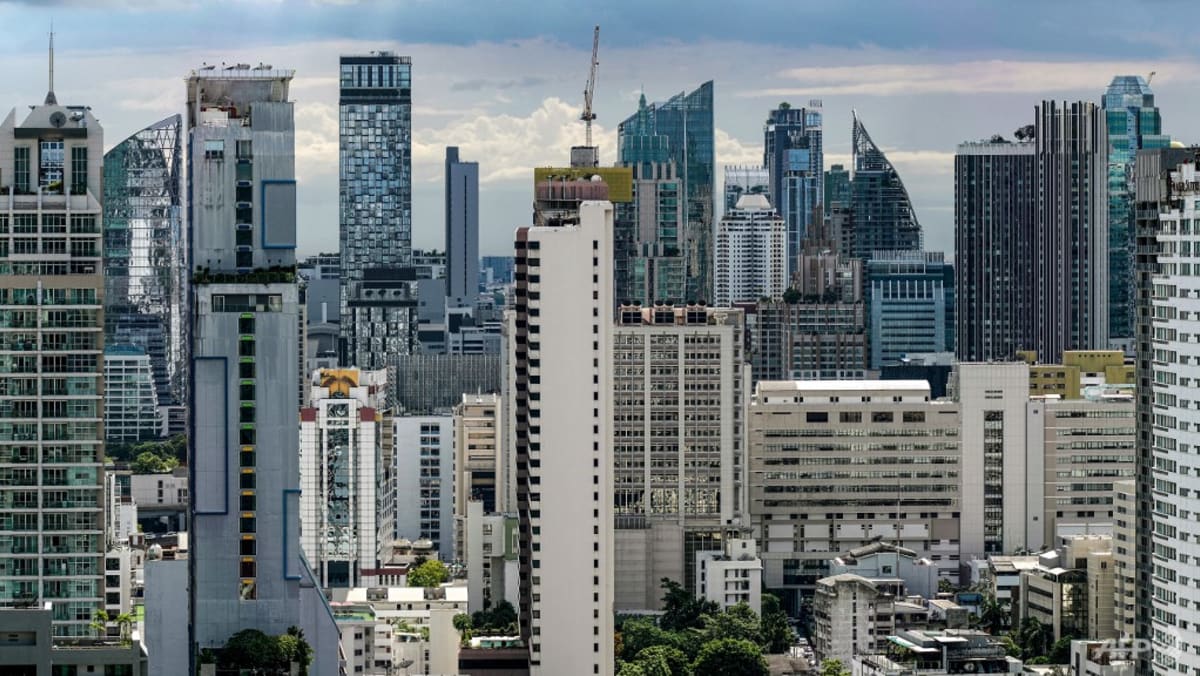
SINGAPORE: When central bankers line up almost daily to assert their commitment to fighting inflation, it makes me think of Thailand. Not the fine resorts and great food. The country’s untrumpeted success is seriously taming prices to the point where officials might want to think about easing up, lest the economy slows too much.
Like the rest of Southeast Asia, Thailand has been blindsided by the modest nature of China’s rebound. Tourism, a key industry, is gradually recovering. The number of Chinese visitors is heading in the right direction, but nothing like the surge that was anticipated when Beijing canceled zero-COVID.
Thailand’s divisive politics aren’t helpful: Two months after an election, the country is without a prime minister.
Don’t let these caveats subtract from a fine story. Most policymakers would prefer to forget that when inflation first started to climb in 2021, they played it down. Having wrestled with how to fire it up in the years before the pandemic, they weren’t going to jump at the initial upticks.
A host of terms were used to describe the benign scenario: Temporary, short-lived and, of course, the now infamous “transitory.” Federal Reserve Chair Jerome Powell stuck by the “T” word too long, before ultimately burying it and embarking on an aggressive tightening.
The Bank of Thailand, by contrast, has embraced transitory – and rightly so. The pace of consumer price increases retreated to 0.2 per cent in June from a year earlier. That’s a dramatic decline from almost 8 per cent in August 2022.
Officials don’t see it staying so anemic for long, but even forecasts of 2.4 per cent next year mean inflation is well and truly reined in. And they did it without smothering the economy by panicking and ratcheting up borrowing costs too rapidly.

